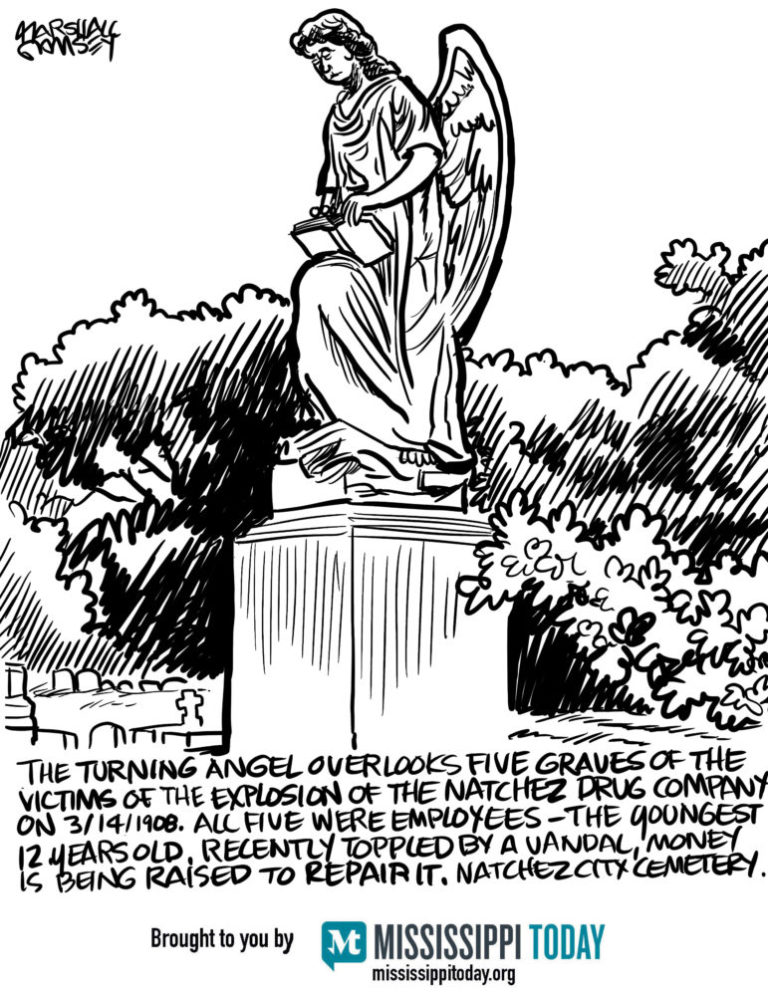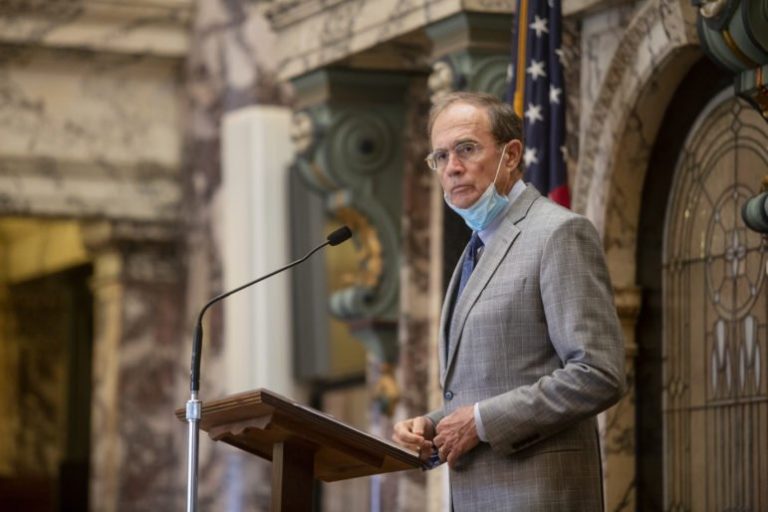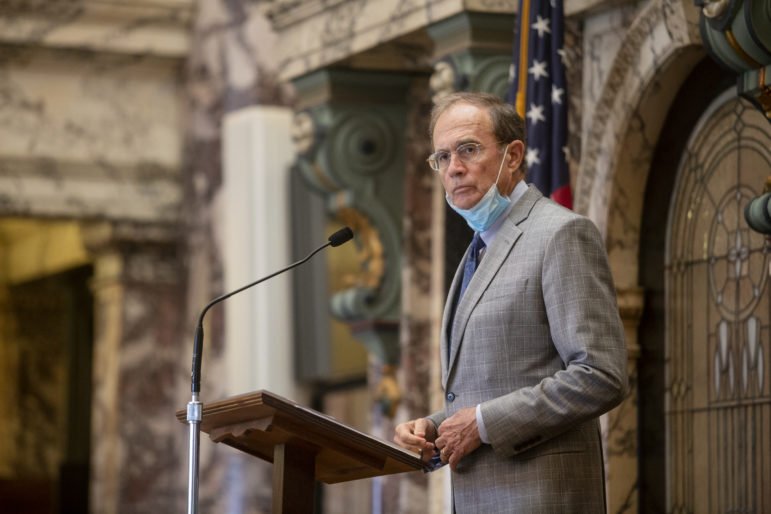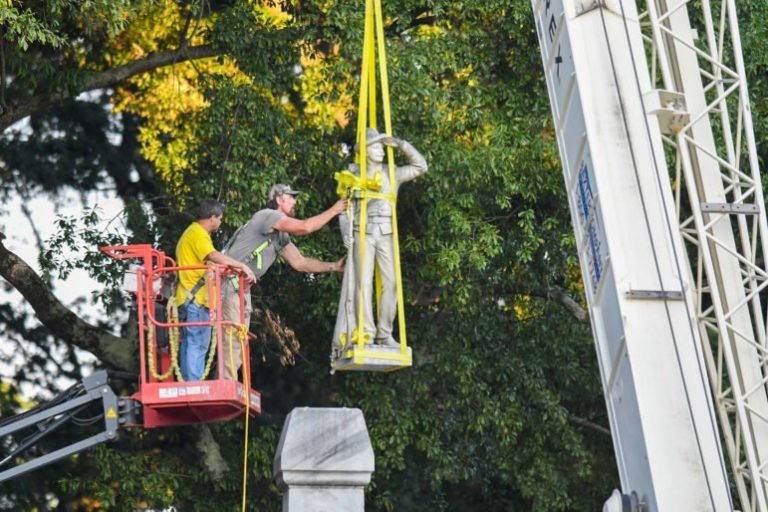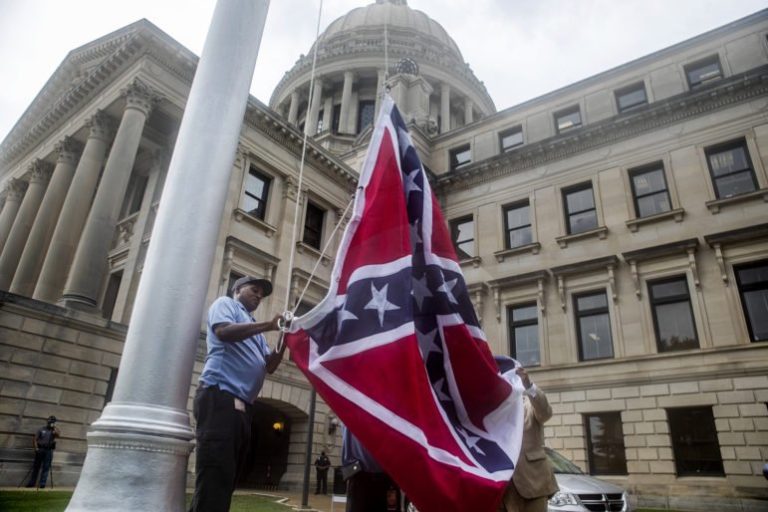
Eric J. Shelton/Mississippi Today, Report For America
Vicksburg Warren School District employees prepare to make food deliveries to students in the school district Wednesday, March 18, 2020.
Mississippi teachers are planning a rally at the state Capitol Friday to urge state leaders not to reopen schools for the upcoming school year as the state’s coronavirus statistics continue to worsen.
A Facebook group called “Mississippi Teachers Unite” is organizing the event, and organizers list two demands:
- That the Mississippi Department of Education postpone reopening schools until Sept. 1 to ensure safe environments for students and teachers. The department must also make sure schools can meet current CDC safety guidelines and not allow schools to conduct in-person classes until those needs are met.
- Fully fund schools so that districts and teachers do not have to purchase their own personal protective equipment to return to work
The group identifies itself as “a non-affiliated grassroots group of Mississippi teachers, school staff, and supportive community members who are concerned for the safety of our students, ourselves and our communities in returning to school.”
“All of us want to be back with our kids is the biggest thing,” said Max Vanlandingham, a teacher involved in planning the event. “Parents want their children to be in school, kids want to be in school, teachers want to be in school, but it’s not safe at this point.”
He emphasized Friday’s 11 a.m. rally is not a strike, but a group of teachers voicing their concerns about returning to the classroom as the number of new cases and deaths continues to rise in Mississippi. Teachers cannot legally strike in Mississippi or they will be fired from their jobs and banned from teaching in the state thereafter.
The event comes on the heels of dire warnings from public officials. Last week the state’s top health officials pleaded for people to take the virus seriously as hospitals and ICUs are running out of beds and having to turn away patients. Rolling averages for patients in an ICU have increased for 16 consecutive days, and the number of patients on ventilators have increased for the past nine days.
“It makes no sense to rush back into a model that we deemed unsafe four months ago,” said Don Turner, a Mississippian who has organized the Mississippi chapter of Safe Return to Campus, a group advocating that schools do not return to campus until counties show no new cases for 14 days. “There’s this kind of laissez-faire attitude taken and no clear directive from leaders.”
Gov. Tate Reeves last week said he was still “100 percent committed” to districts starting school this fall in a “safe, responsible way.” When the pandemic became serious in the spring, Reeves closed school buildings and districts had to pivot to remote learning. As schools across the state are preparing to open up for the new school year, the state Department of Education has given them three options to choose from: in-person, traditional schooling, virtual learning, or some hybrid of the two.
Each school district has to make a decision and post it to its website by July 31. Many have already done so, making tough decisions about how and when students will report back to the classroom if at all, how lunches will be served and bus transportation will work.
However, as the number of cases in the state continued to reach an all-time high last week, Reeves announced a mask ordinance for 13 counties based on criteria of having seen 200 new cases within the last 14 days or an average of 500 cases per 100,000 residents over that time. This throws a wrench in plans for districts in those counties, which now have to figure out how to operate and comply with the mandate which limits social gatherings to 10 people indoors and 20 outdoors.
Take our survey: How should schools in Mississippi reopen in the fall?
The post ‘It’s not safe’: As pandemic worsens, teachers plan to rally against reopening schools appeared first on Mississippi Today.
